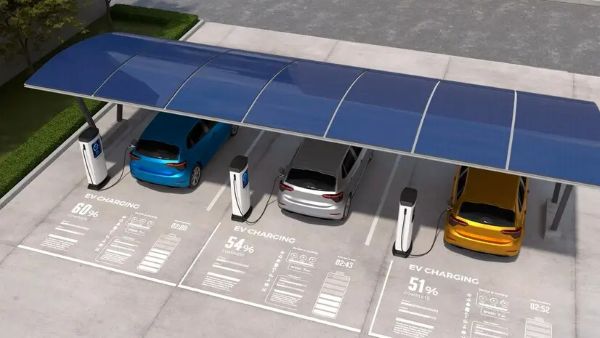


Megawatt EV Charging: Revolutionizing Heavy-Duty Electric Transportation
Introduction: The Rise of Megawatt Charging for Electric Trucks
As a professional EV charger manufacturer in China, Topper Company provides dependable electric vehicle charging equipment and comprehensive charging solutions.
As the transportation industry shifts towards sustainability, one of the major hurdles in electrifying heavy-duty vehicles is the slow charging speed. Traditional charging systems take hours, which is impractical for commercial fleets operating on tight schedules. Enter the Megawatt Charging System (MCS)—a revolutionary charging technology designed to power electric trucks and buses in minutes, with capacities exceeding 1,000 kW (1 MW) and scaling up to 3.75 MW. This breakthrough promises to transform the commercial transport sector, facilitating the rapid adoption of zero-emission heavy-duty vehicles.
What is MCS?
The Megawatt Charging System (MCS) is designed specifically for electric trucks, buses, and other heavy-duty vehicles with large battery capacities. Unlike traditional chargers, MCS delivers ultra-fast charging at power levels greater than 1 MW, reducing downtime for fleets significantly.
Key Features of MCS:
Ultra-Fast Charging: Charges heavy-duty EVs to 80% in minutes.
High Power Output: Supports up to 3.75 MW, ideal for long-haul trucks.
Standardized Design: Adheres to SAE J3271 standards for cross-manufacturer compatibility.
Interoperability: Works seamlessly with various vehicle models, charging networks, and grid systems.
Why MCS is a Game-Changer for Heavy-Duty Transport
While current systems like CCS are sufficient for passenger EVs, they are far too slow for commercial trucks. A typical 350 kW charger can take hours to recharge a truck, making it unsuitable for freight operations. MCS delivers power levels that enable:
Faster turnaround times for freight operators.
Increased fleet management efficiency.
Lower total cost of ownership by minimizing downtime.
MCS vs. Passenger EV Charging
MCS is specifically tailored for heavy-duty vehicles, not passenger EVs. Most passenger EVs only require 50 kW to 350 kW charging, and installing MCS for cars would be overkill. Additionally, subjecting passenger EV batteries to megawatt-level charging could degrade them prematurely. MCS, on the other hand, is designed to meet the high-power needs of electric trucks and buses.
Virta’s 1.2 MW Pilot Project
Virta is leading the charge with a 1.2 MW MCS pilot project in Sweden, set to launch in 2025. This collaboration with Hedin Supercharge will test the technology under real-world conditions, providing valuable data on charging efficiency, grid impact, and vehicle performance. The success of this pilot could pave the way for widespread MCS adoption across Europe and beyond.
Challenges & Future Outlook
While MCS offers immense potential, several challenges remain:
Infrastructure Costs: High-power equipment and grid upgrades are necessary.
Grid Capacity: Local grids must be reinforced to handle multi-megawatt loads.
Vehicle Availability: Few trucks are currently compatible with MCS, but major manufacturers are developing suitable models.
Despite these challenges, the future of MCS looks promising. As battery technology advances and more electric trucks hit the market, megawatt charging will be crucial for decarbonizing the freight industry.
Conclusion: The Road Ahead
MCS is set to revolutionize heavy-duty transport by enabling fast, efficient, and sustainable long-haul trucking. With pilot projects already underway, megawatt charging is on track to become a key part of the logistics landscape by 2025-2030. As the transition to sustainable trucking accelerates, MCS will play a vital role in making zero-emission freight transport a reality.Know more about Google SEO Directory
